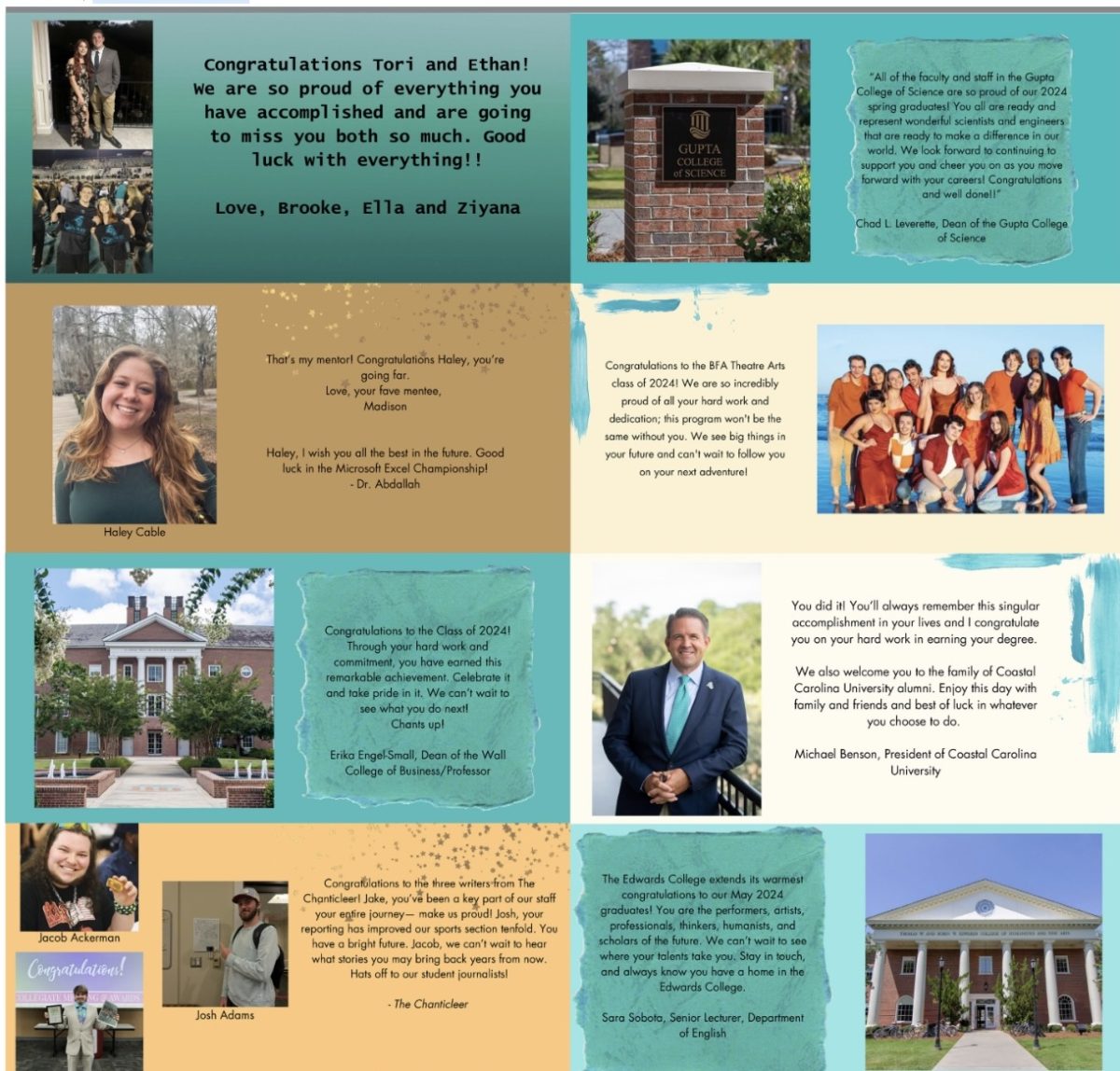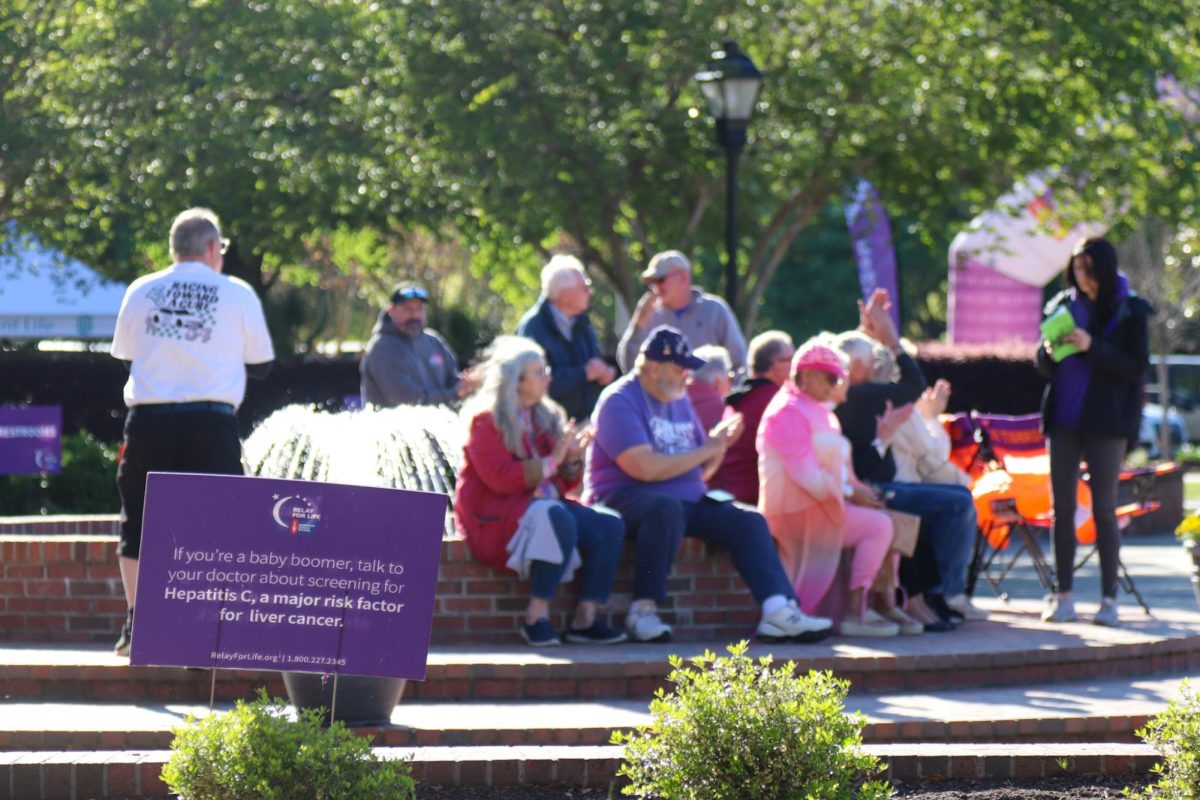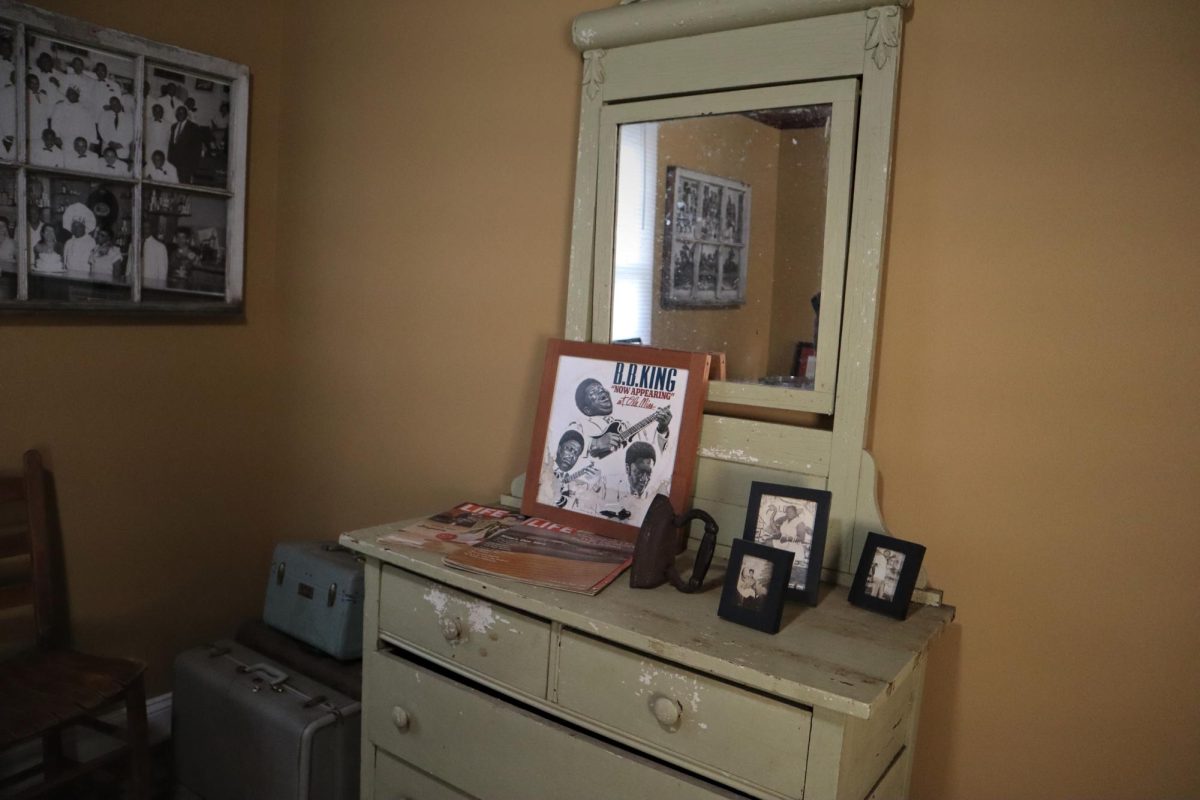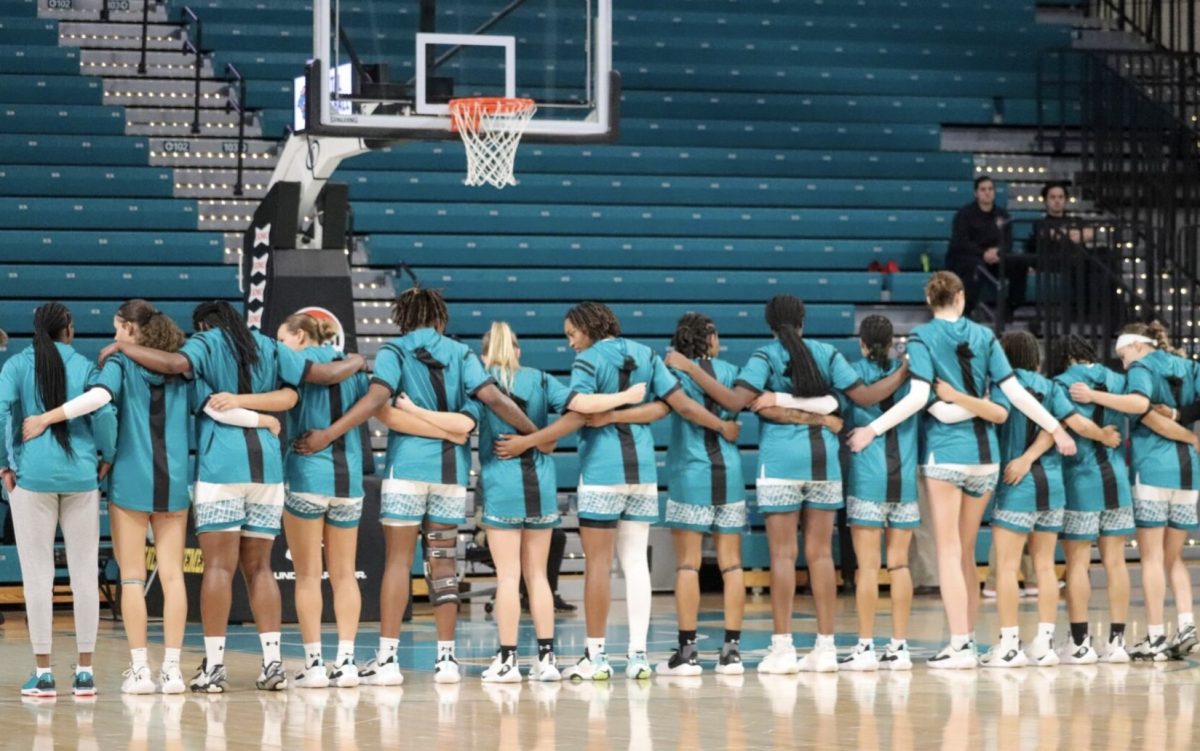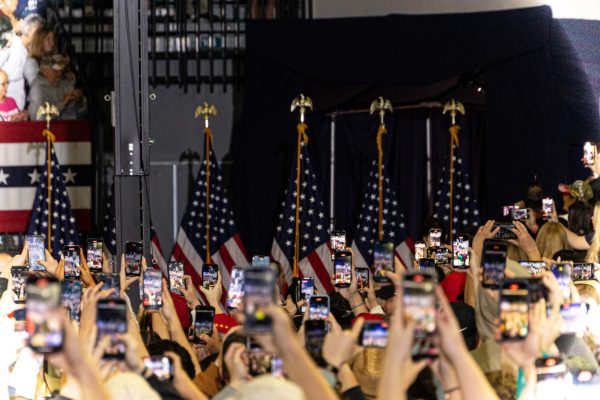Sexual assault victims tell teal nation what they were wearing
The Women’s and Gender Studies Department brought the ‘What Were You Wearing?’ exhibit to Coastal, featuring the stories of victims (given with their consent) describing what they were wearing when they were sexually assaulted, and the clothing they were wearing at the time.
The exhibit originated from the University of Arkansas in 2013 and was created by Jen Brockman and Mary Wyandt-Hiebert, inspired by a poem of the same name by Mary Simmerling. The exhibit was in the Lib Jackson Student Union from March 21-28, and had the goal of validating victims, spreading awareness, and rebutting the common question “What were you wearing?” that’s often asked to assault survivors.
While the exhibit was on display, trigger warning signs were posted on all entrances to the student union directing those who may be sensitive to the topic on a detour if they wished not to see it. The creators say the exhibit challenges viewers to engage with the connection they have with clothing and reflect on what gives the myth victims “ask for it” to happen by the clothes they choose to wear so much power.
Ina Seethaler, director of the Women’s and Gender Studies, said members of the department chose from anonymous stories to post as part of the exhibit and they used Coastal merchandise for some outfits to remind everyone these incidents also happen on our campus.
Seethaler said the department will have various events for Sexual Assault Prevention and Awareness Month. They’re collaborating with the LiveWell office for a Day of Action event in the Lib Jackson Rotunda where various organizations will give out information and raise awareness on April 5 as well as be a vigil for sexual violence survivors on April 5 and 6 in Blanton Park outside of the Singleton Building.
She also said there will be more events from the department on topics such as sexual violence, education, healthy relationships, and consent. Seethaler advises students to take a Women’s and Gender Studies course and join campus organizations such as Student Advocacy for Gender Equality (SAGE) to learn more about these topics.
